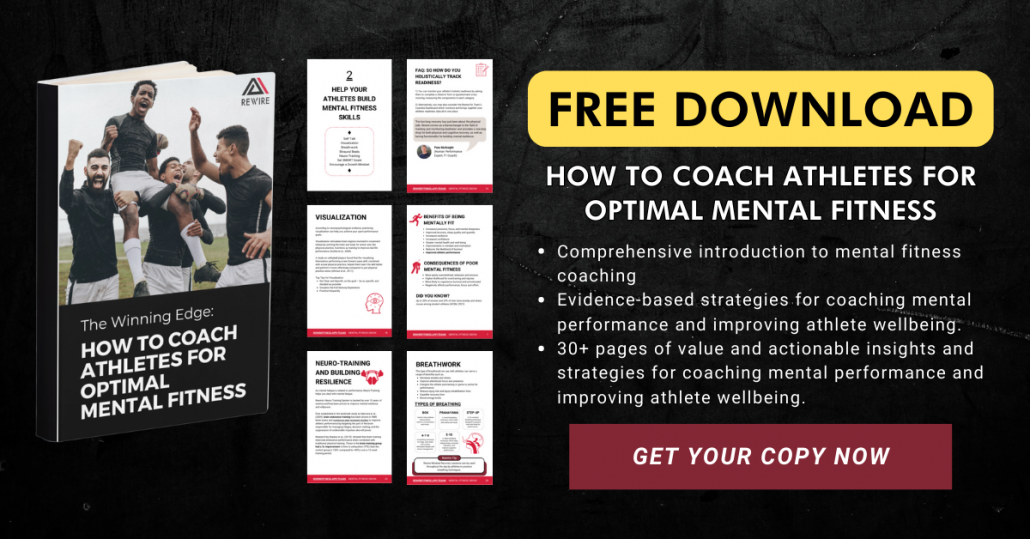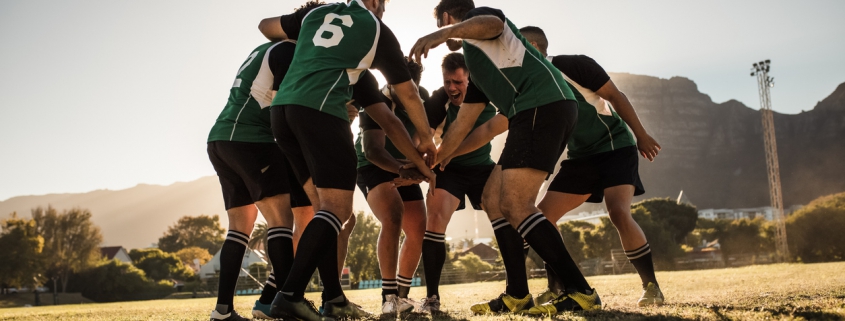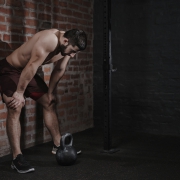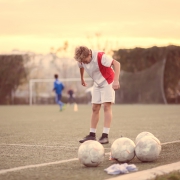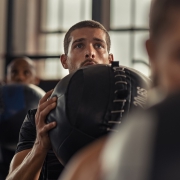What Qualities Make A Great Sports Coach?
A great coach has several unique traits — here’s what they are.
Coaches play a fundamental role in mentoring the next generation of athletes. And the skills learnt don’t end on the pitch — they also include life skills such as self belief, and many other important qualities.
Naturally, some coaches are better than others. That’s why the very best coaches mentor the greatest athletes. Think: Michael Jordan, Roger Federer, Eliud Kipchoge… the list goes on. But how do coaches go from being good, to great? What makes some sports coaches that much better than others?
And how can you become a more successful coach?
Related: What Separates a Good Coach From a Great Coach?
That’s what this blog post is all about. We explain key traits and qualities of great sports coaches. If you’re a coach, there are definitely a few takeaways you can use to improve your coaching further. There’s something for everyone, whether you coach youth athletics, track and field, or professional sports.
Here’s why some sports coaches host better coaching sessions, and are generally more successful.
What are the qualities of a great coach?
So, what makes a good coach? What qualities do some coaches have that others do not?
- An expert understanding of their sport
- Effective communication
- Good coaches have the willingness to share knowledge
- Commitment, discipline, and passion
An expert understanding of their sport
Many of the great coaches were also athletes in the same sport.
For example, Phil Jackson won an NBA title with the New York Knicks as a player in 1973; Kenny Dalglish, a professional footballer player for Liverpool, Celtic, and Scotland, later went on to manage Liverpool, and Wayne Gretzky, arguably the greatest professional hockey player of all time, was also head coach at the Phoenix Coyotes.
While it’s not a requirement that the best coaches also be players, their first-hand athlete experience can certainly lend itself to a better understanding of the sport that they coach and how their athletes operate.
Athletes who turn into coaches can pass on their knowledge, from training techniques to mental preparation leading up to a big game. They can better relate to their athletes — they know what works, what it feels like to be a player, and what it takes to reach the highest level, especially if they achieved great success as an elite athlete.
Great coaching and effective communication go hand in hand
The importance of effective communication is coaching 101. But being able to state goals and expectations and deliver feedback clearly is a fundamental component of being a great coach.
But as you already know, communication is a two-way street. It takes two (or more) people to have a conversation. A great coach listens to their athletes — they know how they feel about training, if they’re experiencing any niggles or pains, and also share their goals so the coach can help them reach their full potential. It’s all about mutual respect.
Likewise, coaches should also look out for the well-being of their athletes. This includes an awareness of burnout — they should know the key signs to support their athletes and should be able to provide recovery advice if needed.
In recent years, burnout (and general injury awareness) has become one of the most important qualities in a successful coach.
Athlete feedback and communication are a part of the coaching process
There are countless stories of coaches not listening to their athletes, and this happens not only in grassroots sports, but also at the elite level.
Take Mary Cain, for example—she was the fastest girl in America until she joined the Nike Oregon Project under the supervision of Alberto Salazar. In a touching piece for the New York Times, Cain describes how her coach and coaching team did not listen to her needs, encouraged her to lose an unhealthy amount of weight, and even drove her to the point of having suicidal thoughts.
This is a perfect example of what not to do as a coach. A coach should do quite the opposite: they need to support their athletes, listen to their concerns, have open conversations with their athletes and actually listen to what they are saying.
The role of a coach is to support their athletes — this needs to be the number one priority. This is the big picture — everything else, in theory, should fit into place if you prioritise this correctly.
Successful coaches can identify unique strengths and weaknesses
Also in the domain of effective communication comes the sub topic of strengths and weaknesses. We all have them as athletes. Whether you’ve got better technique but poor form in the final 400m, or a solid aerobic engine but a lack of awareness on the field.
A good coach can identify these areas (especially weaknesses) and communicate these in the right way and with the right attitude.
If an open line of communication and respect is evident, athletes will be more open to feedback. And ultimately, that’s what makes for great athletes.
Good coaches should consistently strive to build effective communication with their athletes. It will also lead athletes to ask more questions, express feedback, and make for a better and more productive coach-to-athlete relationship in the future.
Good coaches have the willingness to share knowledge
A great coach not only tells their athletes what to do — what sessions to perform and when to take it easy — but they tell their athletes WHY they are doing it.
Sharing their knowledge provides athletes with a reason to do what they are doing. It adds context to those gruelling workouts — if an athlete knows that it’ll make them faster, they are more likely to commit to their training fully.
This is especially true with individual sports, such as track and field events. A lot of training is done solo — if there’s ever the need for a little added motivation, it’s when you’re tackling an interval session alone on the track.
Top coaches use this as a tool to build self belief in their athletes.
Commitment, discipline, and passion
A great coach has an infectious energy — they share their commitment and passion on the track, on the field, and in the locker room.
Athletes want coaches who can motivate and inspire them — this is an especially useful trait during challenging training sessions and intense competition.
A passionate coach can talk about their sport for hours. They often show great discipline and commitment to each of their athletes, going above and beyond to support them. Many coaches even coach in an unpaid or volunteer role — these are the coaches who really love what they do, supporting the youth and grassroots athletes, in particular.
Of course, you can be a paid coach with commitment, discipline, and an infectious passion for your sport. But having these three traits can make a world of difference for your athletes.
Coaches can use Rewire to improve athlete performance
If you’re a coach, whether you train older adolescents or adults, you can use Rewire to gain a better holistic understanding of your athletes. For example, you can measure their daily readiness, identify trends in performance, assess recovery and fatigue states, and even recognise physiological, cognitive, and emotional domains which may affect performance.
Rewire for Teams provides coaches with the tools to make informed coaching recommendations while supporting the health and wellness of their athletes.
Rewire is the best tool for coaches and practitioners — you can take your coaching a step further with new insights to support your athletes more holistically. Successful coaches use it and so can you.
Book a free consultation today to learn more about how Rewire can help your team.
